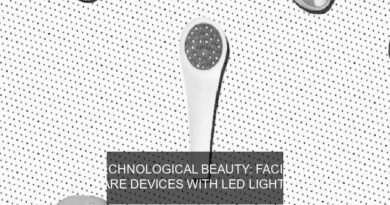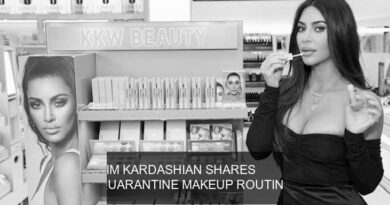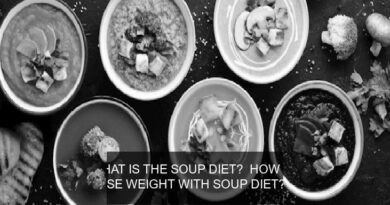10 VITAMINS THAT ARE GOOD FOR HAIR LOSS
Hair is considered one of the most valuable characteristics. Although it does not have a vital function for humans, it remains indispensable in sexual and social communication. Although there are many different factors that determine the structure, quality and health of our hair, nutritional preferences are valuable determinants. For healthy hair, first of all, it is necessary to eat regularly and adequately. No matter how much the hair and skin are fed from the outside, they do not become fully healthy when they are not fed from the inside. For this reason, some vitamins and minerals are directly related to hair health. In other words, it means that both the quality and size of the hair are closely related to the nutrition of the individual.
Which vitamins are good for hair loss?
IRON
Iron is a precious mineral for many bodily functions, including hair growth. Iron deficiency, which causes anemia, is among the main causes of hair loss and is especially common in women. The first mobilized unit of iron required for hemoglobin production is hair follicles. Because of this, hair loss may begin long before anemia is seen in the blood. Serum ferritin level is the most sensitive and specific laboratory test to show iron deficiency. Therefore, in case of hair loss, it is recommended to bring the iron stores to the desired levels. Liver, red meat, lentils, eggs, oysters are strong foods in terms of iron.
ZINC
Although zinc is the first thing that comes to mind when it comes to hair loss, zinc deficiency is not common. Zinc is a vital mineral found in the structure of hundreds of enzymes in the body. It has a valuable role in the production and repair of hair, the work of the sebaceous glands. In zinc deficiency, unsystematic bands, called trichotiodystrophy, are seen in the hair strands on microscopy. The hairs are thin. But too much zinc causes hair loss. Therefore, healthy individuals should meet their zinc requirement by consuming natural sources such as oysters, shrimp, red meat, spinach, wheat germ, pumpkin seeds and lentils instead of taking zinc supplements.
VITAMIN A
Vitamin A is a valuable antioxidant that protects hair tissue from the negative effects of free radicals. It helps the production of an oily element called sebum in the skin. Sebum moisturizes the scalp and reinforces the healthy and shiny hair. A deficiency or excess of vitamin A causes hair loss. In other words, it is a vitamin that can be said to be a waste of a little decision. The best sources of vitamin A are plants such as carrots, pumpkin, spinach, broccoli, sweet potatoes, kale and lentils. Vitamin A is also found in animal foods such as milk, eggs, yoghurt, cod fish, liver oil.
BIOTIN (Vitamin B7 or Vitamin H)
B vitamins are essential for healthy hair growth, and biotin, the most valuable, plays a role in the power generation of cells. It is valuable in the production of keratin, which is effective against hair loss and hair whitening. In addition, biotin is also protective against hair breakage. If it is not taken properly, it causes flaking on the scalp and hair loss. Foods that are sources of biotin: Raw egg yolks, liver, whole grains, cauliflower, avocado, soybeans and other legumes, mulberries, mushrooms, peanuts and milk.
VITAMIN B5 (Pantothenic acid)
It has many functions, but its most valuable duties are maintaining growth, supporting the border system and supporting hair production. This vitamin is an expensive and indispensable protector of hair health. Especially the calcium pantothenate form is very effective as a base.
FOLIC ACID (Vitamin B9)
It helps the development of tissues and the proper functioning of cell functions. It promotes hair growth and cell renewal. Folic acid deficiency can lead to deterioration of hair health, delayed growth, hair loss and premature graying. Broccoli, oranges, legumes, meat and green leafy vegetables contain high levels of folic acid.
VITAMIN B12
Vitamin B12 is one of the basic components in the formation of DNA, as in red blood cells that carry the oxygen and nutrients necessary to all organs. Hair follicles that cannot be adequately oxygenated in vitamin B12 deficiency cannot produce hair. Liver, meat, fish, chicken, eggs and dairy products are the leading foods rich in B12.
VITAMIN C (Ascorbic Acid)
It is a powerful antioxidant. It protects hair against oxidative stress created by free radical molecules that cause hair aging. In the absence of vitamin C, which plays a role in the production of collagen protein, which is a valuable part of the hair structure, and in the cross-linking of keratin fibers, the hair breaks quickly, corkscrew hair forms, loses its shine and looks weak. Strawberry, green pepper, citrus fruits, kiwi, tomato, broccoli are all good sources of vitamin C.
Photo: @hoskelsa
VITAMIN D
According to studies, it is known that vitamin D has a role in hair growth, differentiation and hair cycle. Since vitamin D is thought to have a role in hair production, vitamin D deficiency should be investigated in the presence of hair loss. Our body produces vitamin D by taking it directly from sunlight. Vitamin D is also found in oily fish and certain types of mushrooms.
PROTEIN
80% of the chemical structure of the hair is made up of a protein called keratin. Therefore, enough protein should be taken for the hair to be healthy. The characteristic feature of the keratin protein that makes up the hair is the high sulfur content it contains. This sulfur comes from the amino acid cystine. L-lysine amino acid is another essential amino acid that is valuable in hair growth. Due to the lack of protein intake, essential amino acids cannot be taken in the production of keratin. Hair becomes dull, easily touched, hair loss is seen. Hair feels soft, but has lost elasticity. Hair may lighten (hypochromotrichia). Sufficient protein intake reinforces new cell formation, namely hair health and development. Since there is not enough fat, protein, vitamins and minerals in protein-poor diets and low-calorie diets, hair may also be lost while losing weight. Bone broth, eggs, salmon, chicken meat are foods that contain quality protein. Almonds, yogurt, milk and broccoli are rich in protein.
If there is more than 100-150 hair loss per day for more than 2 months, it should be investigated by a dermatologist.
ARTICLE: Specialist Physician Yeliz Karakoca




